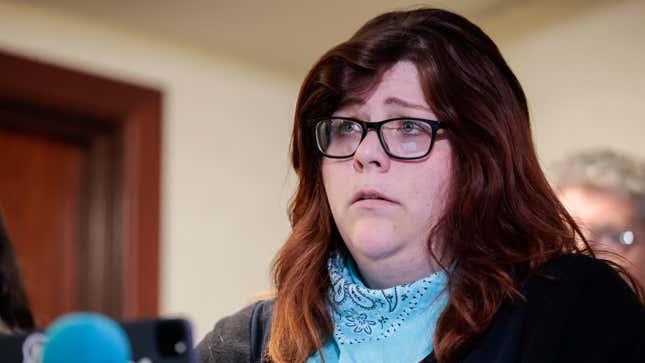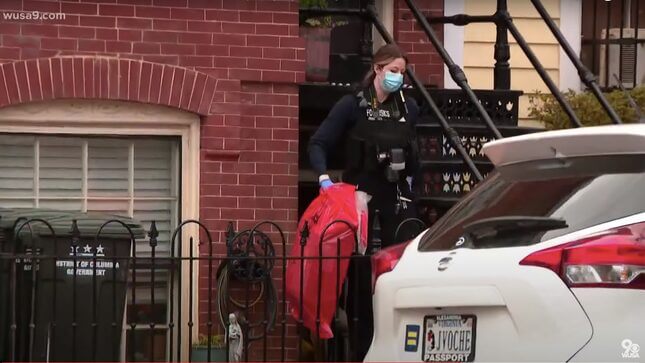Anti-Abortion Activist Facing Trial Won’t Be Allowed to Show the 5 Fetuses She Stole
The photos are "incendiary and entirely distracting from the events at issue," a judge told Lauren Handy, who faces prison time for blocking a clinic entrance.
AbortionPolitics

An anti-abortion activist made headlines last spring for storing five fetuses in the refrigerator of her Washington, D.C., apartment. She now faces felony charges for blockading an abortion clinic on a separate occasion, and her trial—where she hoped to be allowed to present lurid photos of said fetal remains to the jury—begins Wednesday. She and the other defendants also sought to argue that their clinic invasion was justified because they believe embryos and fetuses are people and that by blocking the entrance and chaining themselves to waiting room chairs, they were preventing murder.
Lauren Handy, 29, claims to have obtained the fetuses from a medical waste truck outside the same Washington, D.C., abortion clinic she blockaded more than a year earlier, though no one can prove that. Conveniently, she and her anti-abortion group tipped off police about the fetal remains the day after the government indicted her for storming the clinic, and Handy’s supporters painted her as a hero whistleblower rather than an alleged felon facing prison time. This is the backdrop for what is sure to be a wild trial.
Handy and her co-defendants attempted to argue in the lead-up to the trial that it was OK for them to break the law because they think fetuses are people—something no federal court has ever agreed with. U.S. District Judge Colleen Kollar-Kotelly wrote in an order on Thursday that Handy cannot show the fetus photos as evidence, in part because she claims to have obtained the remains about 15 months after the clinic blockade for which she is on trial. “The Court will not permit Defendants to show photos of expired fetuses (or, in their telling, dead babies) and the containers in which the fetal remains were purportedly placed,” she wrote. “Such photos are particularly incendiary and entirely distracting from the events at issue. The truth of the procedures related to the fetal remains are not, as Defendant concedes, relevant to this case.”
Handy faces up to 11 years in federal prison and a fine of up to $350,000 for violating the Freedom of Access to Clinic Entrances Act, or FACE Act, when she and others blockaded a D.C. abortion clinic on October 22, 2020. Handy has already been tried and sentenced on state charges, including 30 days in jail for trespassing at a Virginia clinic in 2021 and 45 days in jail for invading a Michigan clinic in 2019. She even planned two more clinic invasions while on pretrial release in this case, prosecutors say.
According to the indictment and trial brief, Handy and her co-defendants conspired to block the clinic. The first step was calling to make an abortion appointment under the fake name “Hazel Jenkins.” On the day of the appointment, an employee opened the door and Handy and eight others forced their way in, knocking over a nurse in the process. Once inside, prosecutors say five of them moved waiting room chairs to block access to the treatment area, then sat in the chairs and tied themselves together using ropes and chains. Two others guarded the employee entrance and blocked a patient from entering the treatment area that way. Another activist stood outside the building to livestream the blockade on Facebook. The blockade lasted more than two hours. Police had to use power tools to remove the locks and chains from some of the defendants and had to carry them out of the building.
-

-

-

-

-

-

-

-

-

-

-

-

-

-

-

-

-

-

-

-

-

-

-

-

-

-

-

-

-

-

-

-

-

-

-

-

-

-

-

-









































